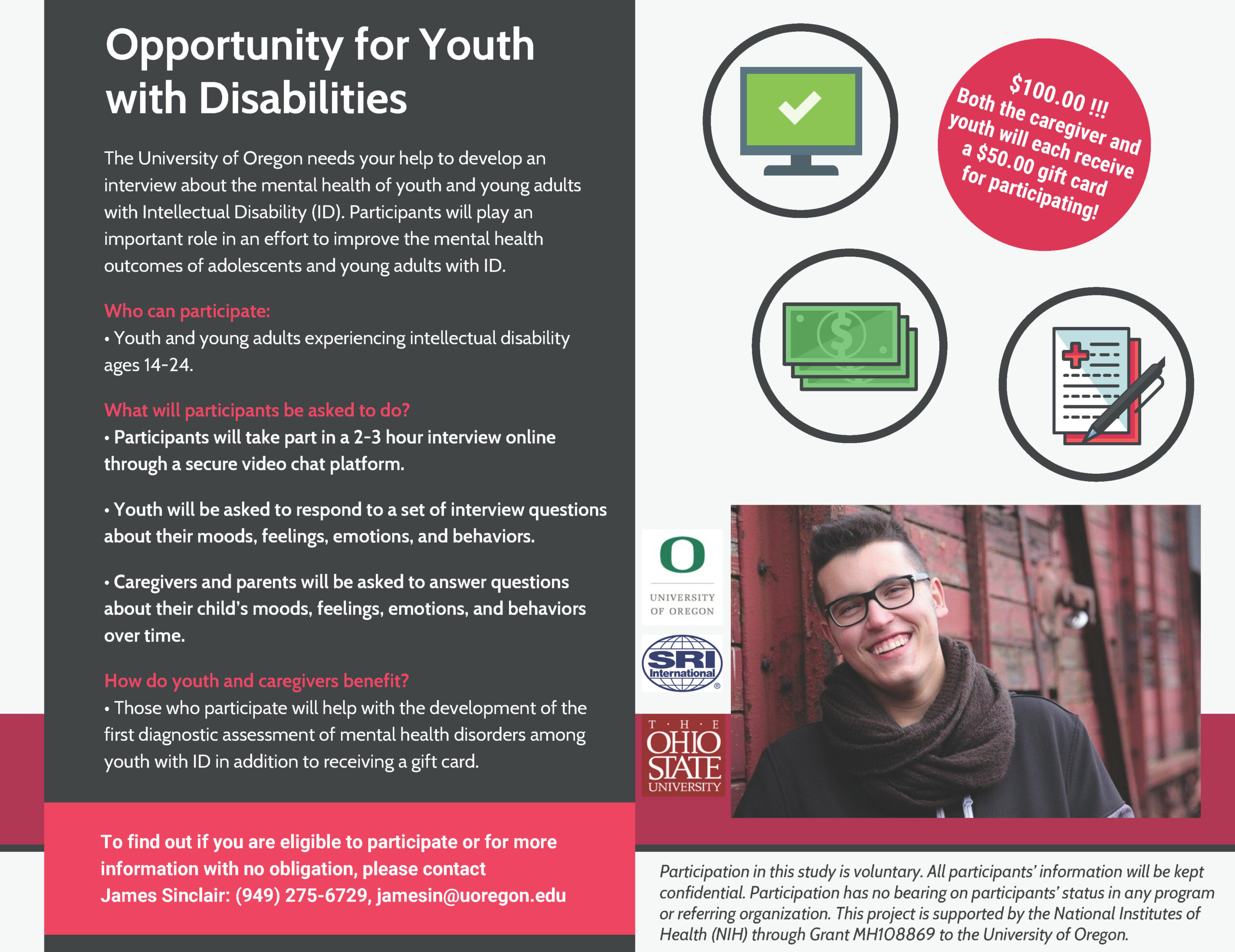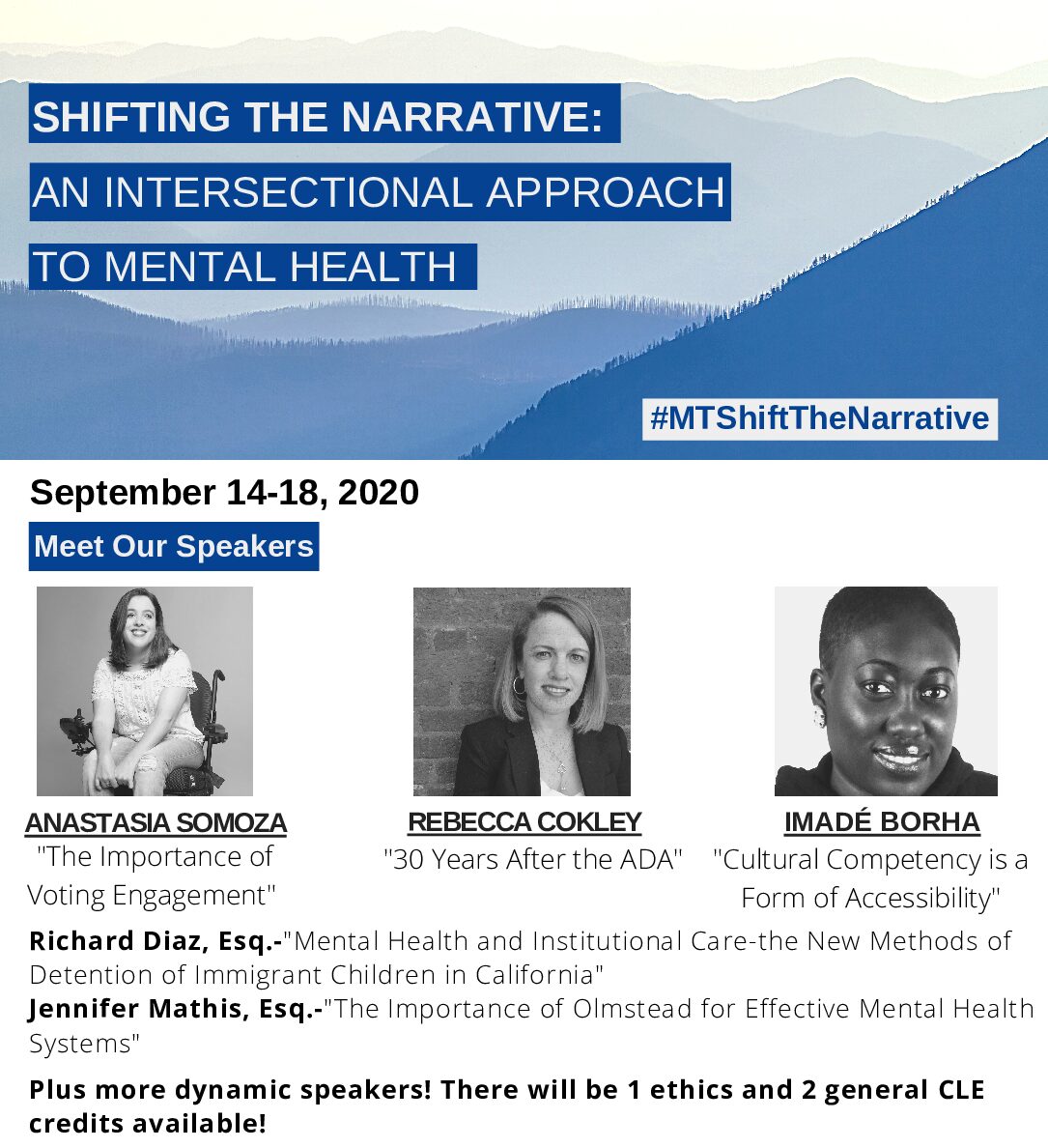Opportunity for Youth with Disabilities
Alexis Reed, a Developmental Disabilities Behavior Consultant in Oregon, is currently collaborating with the University of Oregon’s University Center for Excellence in Developmental Disabilities to share a research opportunity for young people (ages 14-24) with intellectual disabilities. They’ve just expanded their outreach to Montana.
The study is a great way for a young person and their parent or provider to make some money, make an important contribution, and break up the monotony of life during the pandemic!
If you are interested or have any questions, please contact Dr. James Sinclair: (949) 275-6729, jamesin@uoregon.edu. See the flyer below for additional information.



